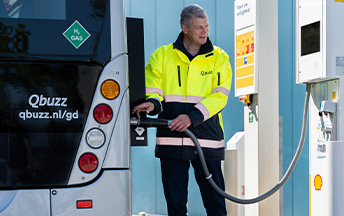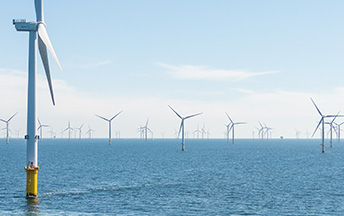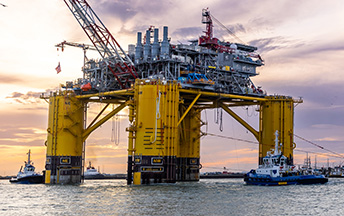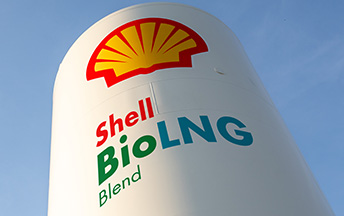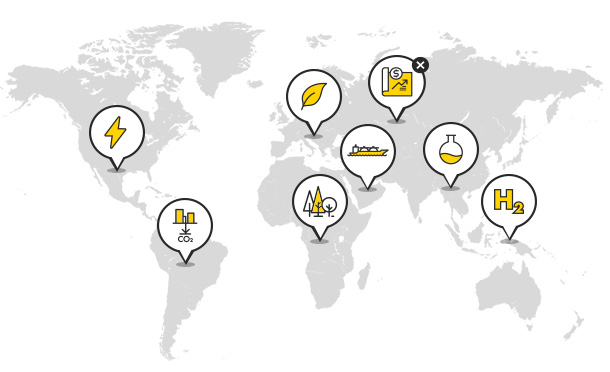Hydrogen
Hydrogen supply and sectors
Hydrogen can play a crucial role in helping the world reach net-zero emissions. It is particularly suitable for use in hard-to-electrify sectors like heavy-duty transport, heavy industry, shipping and aviation because of its high energy density. We are increasing our investment in the production and supply of hydrogen.
In July 2022, we took the final investment decision to build Holland Hydrogen 1 in the Netherlands, which will be Europe’s largest renewable hydrogen plant once operational. The 200 MW electrolyser will produce up to 80 tonnes of renewable hydrogen a day, enough to meet up to 10% of the annual hydrogen demand from Shell Energy and Chemicals Park Rotterdam. Holland Hydrogen 1 could also meet future demand for renewable hydrogen from the transport and industrial sectors.
This adds to our 20 MW hydrogen electrolyser project in Zhangjiakou, China, which was completed in time to supply renewable-based hydrogen to the 2022 Winter Olympics in February. By the end of 2022, our total electrolyser capacity was 30 MW. This is about 6% of the global capacity of installed electrolysers in 2021, according to the International Energy Agency (IEA).
Hydrogen is not yet widely used by motorists or commercial road transport customers. We have more than 50 hydrogen retail sites in Europe and North America, where drivers can fill up their vehicles with hydrogen fuel. To encourage some commercial road transport customers to gain experience with hydrogen, we ordered 25 hydrogen trucks in Germany. The trucks will be rented out in a pay-per-use system, allowing us to better understand what it will take to increase the uptake of hydrogen by commercial drivers.
Hydrogen sits within our Renewables and Energy Solutions business segment.
Read more about our hydrogen business at www.shell.com/energy-and-innovation/new-energies/hydrogen.
In focus The new technologies behind the energy transition
We continue to invest in the research and development of new technologies that will help to decarbonise our operations and reduce emissions for our customers. In 2022, research and development expenditure on projects that contributed to decarbonisation was around $440 million, representing about 41% of our total research and development spend.
We launched our Energy Transition Campus Amsterdam, creating opportunities for others to join us in finding solutions to the world’s energy challenges. One such project is a collaboration between Shell and Dow, an American chemicals company, to electrify steam cracking furnaces with renewable energy. Steam cracking is one of the most carbon-intensive processes in petrochemical production. E-cracking furnaces operated using renewable electricity have the potential to reduce Scope 1 emissions from steam cracking by up to 90%.
Shell invests in start-ups that develop new technologies and business models which have the potential to accelerate the energy transition. Globally, Shell Ventures is one of the most active venture capital investors in climate technology and mobility. In 2022, Shell Ventures invested in more than 20 start-ups, including Statiq, a company that is building a charging network for electric vehicles in India; the Dutch company enie.nl, which installs solar panels on roofs in the Netherlands and Africa; and Li-Industries, an American company that has developed a unique technology to recycle lithium batteries.
Read more about the role technology plays at www.shell.com/energy-and-innovation/the-role-technology-plays and www.shell.com/energy-and-innovation/new-energies/shell-ventures






